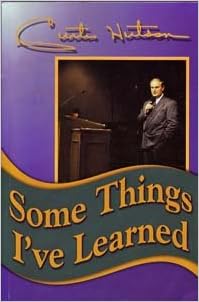
Speak like Churchill, Stand like Lincoln
By James C. Humes
Lincoln overcame is a voice, Martin Luther king Junior overcame being black and a white dominant world, Churchill overcame his weaknesses, etc. Leaders overcome weaknesses or fears to do what they feel life’s calling demands.
Power Pause
Many great leaders that have dominated public speaking use the power pause to look at people and get their attention and let it sink in.
Before you speak and before you answer a question, use the power pause to look people in the eye, gather your thoughts and then speak.
Stand, stare and pause before saying anything. Make your power pause a moment to gather your thoughts before you open your mouth. It commands attention from others and speaks volumes. Stand, stare and command your audience
Power Openers
A good speakers opening is powerful and important. When you stand up, your opener will tell people who you are and what you mean.
99% of speakers start by saying thank you or hello, or something boring… This makes the rest of what you say very boring.
If you do not captivate your audience in the opening, the people will begin to daydream about other things and will be very difficult to gain back there ear.
Begin with a bang. Begin with a strong statement. If you have, start your speech off with that. The difference between a normal speaker and a great speaker is how he begins – a great speaker begins with a bang.
Attention grabbers – sit down and plan what you’re going to say and then make a singer of a good opening.
Power Presence.
Dress right. It’s not just your for a tour that will make you a good speaker, but your aura, your presence. Dress in a way that is gold and commands respect, but not flashy goofy. Many people have signs they are known for – specific hat, color, type of suit or tie, etc.
Power Point.
Speak plain and clear and to the point. What is your bottom line, what do you want the people to understand or know before you finish. When some people stand, they do not know what they’re going to say, when they are speaking they do not know what they’re saying and when they finish they do not know what they said.
What is the purpose of your message? Many people ramble, many people do not have a point or have figured out and when they begin their speech and do not figure it out until later. Stop, plan and think. No your point before you begin. What is the bottom line of your message – you focus on this first.
Yes, you need stories, illustrations and truth to help out, but you first must have the point of what you want to say.
Know your target audience
Before you speak, ask yourself what your purpose speaking to these people is, then meditate and dictate to yourself what that is.
Power Brief.
A speech that is good many times is brief. Less is more.
Les is generally better than more
Terse is far better than tedious. If your audience is expecting 20 or 30 minutes, go with 10 minutes and surprise them. That is the power brief.
Brief is better – one of the most memorable speeches was the Declaration of Independence that was about two minutes long.
Brief is also more memorable.
Shorter is sweeter.
Sometimes what you need to say to the point and brief – a Power brief can be short.
Insecure to feel they have to use up every minute of their time. It is the self-assured that knows they do not have to use up every moment of a lot of time. Great speakers speak for brief.
Power brief is the short statement that can replace the whole message.
Brief is better in short is sharper.
Listen to what others say get the meet together.
Power Quote.
Those that never quote others are never quoted.
Dig up a powerful quotation use it.
Take a picture and read the quote on the back of it – using a specific item (bible, newspaper article, envelope, etc.) on it.
Dramatize and emphasize your quotes to make them more powerful.
A quote in the middle of the speech is like a picture of this changing up his pitch throwing a curveball. It can be very dynamic.
Start collecting good quotations; make a file out of it. Use only quotations from famous people.
Put them in under specific headings like: action, leadership, help, etc.
Too many statistics for numbers can confuse people are. Reading a statistic can be good, reading many statistics is not good.
Too many slides make the audience tired. Do not become overly dependent upon slides. If the size or a projection, not mechanical projection. Let your slides be a prop, not a crutch. Keep the slides simple and do not make them confusing. If you have to explain the slide, you have destroyed the reason you are using it – nothing to explain it will cause the audience to become get in and tired. If the picture is not simple and self-explanatory, don’t try it out. Visual aids are a visual, not a substitute for speaking. Quotes are an appetizer, not a full meal.
Power Wit.
Prepare the eye with.
Not power jokes, but power wit. Humor is not only jokes. Great speakers know how to use humor.
The 3Rs in humor: make it realistic, make it relevant and don’t read it.
Power Parable.
Jesus used parables.
Parables provide pictures to abstraction.
Parable power is persuasive power.
Parable Gesture
Sometimes gestures say more than words.
People should be able to see your concern or whatever by your actions – your facial or body language speaks volumes. You can bond through body language.
One gesture maybe all it takes to get your point across. Acts of the body can register more than words. Remember pilot washing his hands saying he is innocent before Christ?
Power Speech
First he read it, then you read it poorly, and then he finished it badly.
Memorize then conversational-ize. Don’t just read something.
Never let words come out of your mouth while your eyes are looking down. When you’re looking down and speaking, you’re disconnecting from your listeners.
Practice the principal see, stop, say. See something and stop for a momentous pause and then say it in your own words. Many speakers getting nervous and think that they have to keep talking instead of pausing, but a pause is good and will make it sound like it is you speaking instead of reading something. The pause is a major tool and writing a speech.
Weather forecasters are hired more because they have learned how to speak and read something then the brains they have.
Power Poetry
And article must be written for the eye but a speech should be written for the ear.
Transform a speech into poetry.
Power Line
Cream – contrast, rhyme, alliteration,
Your audience will most likely only remember one line from your speech, make it a good one.
Power Question
Sometimes the right question powers the punch of a lightning strike.
Hold the power of your speech or suggestion into a question.
Sometimes Jesus Christ posed a question two others that was very big. Many of his teachings were informed of questions.
A question forces the listener to sit down, think and react whereas a declarative statement does not. It compels someone to answer.
Know the answer before you ask the question.
If the trumpet does not make a sure sound, how will the soldiers know what to do? (Apostle Paul)
If you want to wake up and get an audience, make a power question, a simple, clear and rhetorical question that will get them to think
Power Word
Use a strong word with the power pause before or after it.
Power Active
Passive voice could mean inactive, lifeless, and unenthusiastic. Passive voice = passive mind. Most of the time, the passive voice just reveals her pushes to a passive mind. The active voice provides forced to your speech where is the passive voice sound spineless and deadens your delivery.
Power Dollar
The one I focus like on the dollar bill.
When making a speech, be direct, tell exactly how much money, exactly what you want them to do, exactly every detail.
Power Button
The power button says ready, set, listen to the audience; setting them up for the power line that is going to follow.
In your notes you may use a highlighter or underline things for emphasis, the audience can’t see that so your power button shows your audience it is coming.
The power button tells people to perk up and listen because what is about to come next is worth writing down and remembering. It is the preamble to the big news that is to follow. It is something like: “the secret is the following”; or, “the following is exactly what you need to do”, etc. this is your neon sign, your ignition switch to turn on the power.
Many great speakers throughout history have used this tactic of using a power button to set up for the power line.
Don’t overuse the power button, limited down to one for speech. And use it only to spotlight a singer that is going to burn a hole in your listeners years.
Power Closer
Great is the art of beginning but greater is the art of closing – Henry Wadsworth Longfellow.
A strong last impression can make your speech great.
The ending is the last impression that the speaker leaves with the audience.
Even if your speech has been flat, you can still leave the audience with a good closer.
For a good ending, you have to appeal to the emotions according to Churchill – pride, love, concern, even fear sometimes.
Your closing does not have to be a tearjerker, any powerful closing will do.
You could use a powerful closer for an inspiring plea or incisive please
Find your own it dates. The best of them come from your own experience.
A doll speech that inns of the dazzle get more applause that a good speech is flat. So remember you can always give a good, emotional or impactful closing.
Power Audacity
Dare to be different, that is what made Lincoln and Churchill stand out above the crowd. Leaders don’t play it safe.
Surprise your audience. Good speakers catch their listeners off-guard, say something, do quick moves, etc.
At times, being straightforward and blunt is exactly what is needed.
A leader can never afford to be boring.
Maybe instead of starting your speech, use silence to make everyone look at you and get their attention.
Stage your scene – steal the spotlight by doing something that will catch ever want to touch and make them respond.
Deep old. Don’t be afraid of drifting from the script if needed.



![Practical Principles for the Pastor (King James Bible Topic Series Book 10) by [Warren, Dr. Ray]](https://images-na.ssl-images-amazon.com/images/I/41phIjKk6LL._SY346_.jpg)